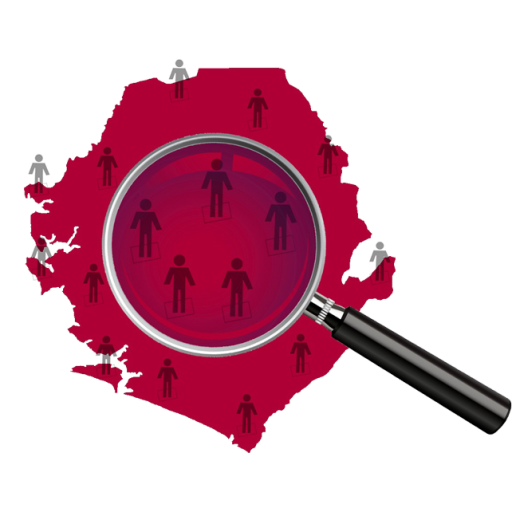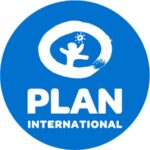Job Overview
-
Date PostedJanuary 15, 2024
-
Location
-
Expiration dateJanuary 29, 2024
-
Experience5 Years
-
GenderBoth
-
QualificationBachelor Degree, Master’s Degree
-
OrganizationPlan International
-
Required LanguagesEnglish
Job Description
PLAN INTERNATIONAL SIERRA LEONE
Revised Interim Country Strategy (July 2018 – June 2023)
Final Review
Terms of Reference
INTRODUCTION:
Plan International strives for a just world that advances children’s rights and equality for girls. As an independent non-profit development and humanitarian organization, we work alongside children, young people, our supporters, and partners to tackle the root causes of the challenges facing girls, youth people and all vulnerable children. We support children’s rights from birth until they reach adulthood and enable children to prepare for and respond to crises and adversity. We drive changes in practice and policy at local, national, and global levels using our reach, experience, and knowledge. For over 80 years we have been building powerful partnerships with and for children, and we are active in over 75 countries.
Plan International has been working in Sierra Leone for over 45 years supporting children, youth, and communities. Plan International Sierra Leone (PISL) works in six districts including Port Loko and Moyamba as sponsorship communities and Koinadugu, Kailahun, Bo and Bombali as project-specific intervention areas. PISL’s priority areas are education, child protection, youth engagement and participation, sexual reproductive health rights, and water, sanitation and hygiene (WASH).
Plan International Global Strategy
In 2022, Plan International launched its global strategy (FY2023-FY2027) with the ambition of “All Girls Standing Strong Creating Global Change”. Plan International’s priority is to be a girls’ rights-focused and youth-led organization, advancing social, gender, economic, and climate justice. Over the next five years, all of Plan International’s entities will be guided by the global strategy aimed at achieving three core objectives: increased impact, strengthened legitimacy, and improved sustainability, grounded in our ambition and priorities.
Plan wants to see girls and young people learn, lead, thrive and decide through six Areas of Global Distinctiveness (AOGDs) that are core to our programming and influencing. These are Inclusive Quality Education (IQE), Skills and Opportunities for Youth Employment and Entrepreneurship (SOYEE), Children, Adolescents and Youth as Active Drivers of Change (LEAD), Sexual and Reproductive Health and Rights (SRHR), Early Childhood Development (ECD) and Protection from Violence (PfV).
Plan International Sierra Leone – Country Strategy:
PISL developed a three-year Interim Country Strategy (CS) for the period 2018 to 2021 in line with national strategic documents and aligned with Plan International’s first Global Strategy (2017 to 2022). The Interim CS focused on three gender transformative priority areas: education, child protection, and sexual reproductive health rights. The global COVID-19 pandemic challenged the delivery of and funding for the Interim CS, which was subsequently reviewed, amended, and extended to 2022 with an additional priority area covering WASH. The Interim CS was further extended to 2023 given that from July 2024 a new CS will seek to respond to the evolving situation of girls and other vulnerable groups and to address the barriers to change in a politically safe environment and with the required (Plan) country leadership. The Interim CS – now revised and extended to June 2023 – has the following four programme objectives:
- Enable girls, vulnerable children, children with disabilities and youth to access, stay in and complete quality formal and informal education both at pre-primary, primary, and secondary school in an inclusive and safe learning environment.
- Contribute to increasing young women’s and young men’s participation in decision-making and enhancing their capacity to take leadership roles in community governance.
- Improve and facilitate gender transformative and adolescent-friendly SRHR information and services, with a focus on influencing the environment, legal and policy frameworks of child protection systems, and harmful traditional practices.
- Contribute to increased access to adequate water supply, improved sanitation, and hygiene behaviour practices to improve outcomes for children in targeted communities.
In addition, PISL has four organizational objectives as follows:
- Ensure effective and efficient country office operations and quality project management within the CS framework.
- Ensure accountability in financial management and procurement processes.
- Promote and value talents in PISL.
- Ensure knowledge and information sharing in the day-to-day work and strengthen effective communication.
PISL has developed a Resource and Mobilization Strategy, Youth Engagement Framework, and Partnership Strategy and Guidelines to align with the core and strategic objectives of the Global Strategy’s ambition “All Girls Standing Strong”.
Purpose of the Final Review:
The overall purpose of the review is to assess the impact of the Revised Interim Country Strategy 2018 – 2023. The review findings will feed into the process of developing the next CS in alignment with Plan International’s global strategy (2022 to 2027) and the government’s key priority initiatives referred to as the country’s Big Five Game changers for sustainable economic transformation and social progress.
Scope of the Final Review :
- The extent to which the programme and organizational objectives have been achieved, the intended and unintended effects on stakeholders, and to what extent their implementation has contributed to Plan International’s overall.
- A desk review of reports and evaluations of projects and programmes implemented during the strategy period within PISL sponsorship and grant intervention areas.
- Feedback from primary impact groups (children, young people, girls, and other vulnerable groups) and key target groups.
- Identification of practical lessons that can be used to improve Plan International’s work in Sierra Leone in the future.
Objectives of the Final Review:
Specifically, the review will provide the following:
- Assessment of the progress and performance against expected outcomes of each programme objective.
- Assessment of the impact of the country programme on children’s rights and the lives of women and girls in PISL implementing areas.
- Assessment of the organization’s operations including how the human resources, procurement, administration, security, IT and policies on finance, fundraising, MERL, influencing and communications, sponsorship communications and governance have affected the delivery of the Revised Interim CS.
- Recommendations and major learnings that may be used to inform the new CS and improve programme quality.
FINAL REVIEW CRITERIA:
The review will use OECD/DAC Evaluation Criteria for Evaluation of Development Assistance namely: relevance, effectiveness, efficiency, impact and sustainability. The criteria of organizational structure and functionality is added. The following questions are examples of ones that may be asked.
Relevance
- To what extent are the programme objectives of the CS (still) aligned with the Government of Sierra Leone’s mandate and national priorities?
- How relevant has the CS been to the priorities and needs of the target groups, partner organizations, and other stakeholders?
- In this CS period, how has PISL positioned itself strategically and how is this reflected in the results achieved?
- To what extent were PISL’s programme delivery approaches appropriate to the development context?
- How is PISL ensuring gender equality in its structure, policies, and practices? What is the evidence for women’s advancement, representation, and leadership within the organization? Are the voices of girls heard in all interventions – from planning to implementation?
Effectiveness and Efficiency
- To what extent have the programme objectives’ outputs contributed to the outcomes? What were the mechanisms of the interventions? What are the challenges to delivering the outputs?
- Have PISL’s partnerships been appropriate and effective in contributing to the outcomes? What was the main factor(s) in effectiveness/ineffectiveness of the partnerships?
- What are the positive or negative, intended or unintended, changes brought about by PISL’s work?
- What is the evidence that the country programme is being efficiently delivered (e.g. funds, equipment, expertise, time) in achieving the intended outcomes and objectives of the CS?
- To what extent has PISL advanced alternatives/ developed innovative frameworks and approaches?
- What have been key changes to the external context that have impacted PISL’s ability to achieve its objectives?
Impact
- What (positive and negative) changes (knowledge, attitudes, behaviors/practices) is the CS having on its priority groups directly and indirectly?
- What has happened as a result of the CS? What real difference has the CS made to the target groups?
Sustainability
- How sustainable (or likely to be sustainable) are the outputs and outcomes of PISL’s interventions?
- Has PISL created capacities (systems, structure, and staff) for sustained results?
- In a context where there is increasing competition for institutional funding, how is PISL diversifying its funding portfolio to help ensure sustainability?
- Is the size and shape of PISL’s operations sustainable in the context of funding trends?
- To what extent are policy and regulatory frameworks in place that will support the continuation of benefits?
- To what extent have partners committed to providing continuing support?
Organizational Structure and Functionality:
- Do the current structure and functions of PISL enable it to be flexible, agile and responsive to changes in operational context at the national and international levels?
- How has PISL’s organizational structure helped or hindered the delivery of the strategy?
- To what extent did the structures at the Country Office and in the Programme Influencing and Implementing Areas enable PISL to achieve its programme and organizational objectives?
- How are projects including sponsorship programmes iteratively and incrementally integrated into achieving the CS?
- Given the current operational space for INGOs in Sierra Leone, what are the key structural changes required in the organizational workforce? Are the decision-making structures effective, transparent, and accountable?
METHODOLOGY:
PISL is seeking for an external evaluator to conduct a final review of the CS. The external consultant will employ a mix of participatory research in the Final Review of the CS:
- The use of the Most Significant Change, Outcome Harvesting and other relevant outcome mapping techniques to document and demonstrate the impact of PISL’s outcomes. The participatory process will involve children, girls, young people, CSOs, community leaders, government ministries and other partners including donors. The review should employ primary and secondary data collection including the review of literature and documents from Plan International, government departments, NGOs, and other relevant sources.
- The principles of Equality, Diversity and Inclusion (EDI) should be applied to ensure gender balance and the involvement of excluded and marginalized groups from the communities in which PISL operates.
- The consultant is expected to specify participatory methodologies for qualitative and quantitative data collection and analysis as appropriate for the Final Review. These should include, but not be limited to, the use of protocols and structured questionnaires, focus group discussions, key informant interviews, appreciative inquiries, etc. The consultant should also specify the process and approach that will ensure the disaggregation of information and analysis by age, gender, and geographic location.
- An appropriate sampling strategy will be used to sample work undertaken in different communities, ensuring the involvement of administrative and community-based institutions and structures in the review. The sampling technique adopted should be statistically valid and ensure that adequate numbers of the target beneficiary population, including children, are included.
DELIVERABLES:
- Detailed Inception Report with draft protocols and questionnaires.
- Final data collection tools including questionnaires for key informant interviews.
- Preliminary findings report of the Country Strategy Review.
- Final Country Strategy Review Report and Recommendations.
The raw data (all transcripts, quantitative data, and data collection tools) must be submitted to PISL together with the review report as per IT Policy.
TASKS:
- Facilitate regular meetings with the Core Review Team, Reference Group and other relevant staff during the review process.
-
- Desk review of relevant documents including annual, quarterly and monthly reports, project final reports, donor reports, monitoring and evaluation reports, activity and work plans, financial reports, budgets, and funding documents, etc.
- Development of protocols and questionnaires for collection of field data.
- Data analysis.
- Coordinate with PISL’s partners and other relevant stakeholders to organize data collection for Key Informant Interviews and Focus Group Discussions.
- Develop draft CS Review Report.
- Produce final CS Review Report after incorporating inputs.
SUPPORT PROVIDED:
- To ensure quality support for the external consultant, PISL will constitute a CS Core Review Team led by the Country Director to guide the process. The Reference Group will be composed of technical staff from regional, national, and global Plan International offices.
- PSIL’s Head of Programme Development and Quality will be the main contact person from the Core team during the CS review process. She can be contacted at aminata.phoray-musa@plan-international.org
- PSIL will make available all the necessary and required documents for review and support all logistical arrangements.
- PSIL will also organize a dissemination workshop for the final report with country staff, partners, the Board, and regional staff.
REVIEW TIMELINE:
The external review process is envisaged to take no more than 45 days.
| Key Output | Responsible Person | By when |
| Call for Proposal | Consultant | January, 15th 2024 |
| Submission of technical and financial proposal | PISL | January, 29th 2024 |
| Inception Meeting, Report, and Contract Signing | Consultant | February 16th, 2023 |
| Application Ethical Approval Process | PISL | January 15th, 2023 |
| Logistical arrangements for field data collection | PISL | February 10th, 2024 |
| Training of Research Assistants and Field Data Collection – External Review | Consultants and young people | February 19th to 5th March, 2024 |
| Data Collection ECLT and CLT (Country Leadership Team) – Internal Review | Consultant | February 19th to 5th March, 2024 |
| Draft CS Review Report and presentation with CLT | Consultant | March 12th, 2024 |
| Feedback from ECLT | PISL | March 12th – 15th, 2024 |
| Final Review Report Submission of the Revised Interim Country Strategy | Consultant | March 22nd, 2024 |
KEY REFERENCE DOCUMENTS:
- Plan International Global Strategy All Girls Standing Strong FY2022-FY2027
- Plan International Sierra Leone Revised Interim Country Strategy June 2018 – July 2023
- Annual and quarterly Plan reports
- Project evaluation reports
- Annual plans and budgets
- Financial reports
- Organizational policies, procedures, systems and structures
- Risk management reports
- Monitoring and Evaluation reports
- The National Development Plan 2021-2025
- Gender Equality and Empowerment Act
- Thematic Sector Plans and Acts
REQUIRED PROFILE OF THE CONSULTANT(S)
Interested individual candidates/firms should possess:
- A Team Leader, who must be an experienced social scientist with excellent skills in research, monitoring, and evaluation of child-centered community development programmes and a strong understanding of rights-based programming.
- Individual experts, who are expected to have a minimum of a Master’s degree or higher in relevant courses and over 10 years of experience in Strategic Management. A thorough research and strategic management experience is preferred.
- Knowledge and experience in Strategic Planning and Reviews, Organizational Development, and Programme Management at the national and international level
- Knowledge and experience in children’s rights and gender analysis.
- An excellent understanding of the theory of change concepts.
- Good understanding of M&E methodologies and participatory research methodology such as PRA, etc.,
- Experience in conducting key informant interviews and focus group discussions.
- Excellent English writing and communication skills.
- Ability to work and travel within disaster risk areas.
PLAN INTERNATIONAL VALUES
The review team will be expected to abide by Plan International’s values and key policies.
WE STRIVE FOR LASTING IMPACT – We strive to achieve a significant and lasting impact on the lives of children and young people and to secure equality for girls. We challenge ourselves to be bold, courageous, focused, and innovative.
WE WORK WELL TOGETHER – We succeed by working effectively with others, inside and outside the organization, including our sponsors and donors. We actively support our colleagues, helping them to achieve their goals. We walk together to create and implement solutions in our teams, across Plan International, with children, girls, young people, communities, and our partners.
WE ARE INCLUSIVE AND EMPOWERING – We respect all people, appreciate differences, and challenge inequality in our programs and workplace. We support children, girls, and young people to increase their confidence and change their lives. We empower our staff to give their best and develop their potential.
WE ARE OPEN AND ACCOUNTABLE – We create a climate of trust inside and outside the organization by being open, honest, and transparent. We hold ourselves and others to account for the decisions we make and for our impact on others, while doing what we say we will do.
ETHICS AND CHILD PROTECTION:
PISL places a high premium on CHILD PROTECTION issues in all its working relationships with its partners and associates and mandates all its working partners and associates to adhere to its CHILD PROTECTION Policy.
As such, the CS review activity must ensure appropriate, safe, non-discriminatory participation; a process of free and un-coerced consent and withdrawal; confidentiality and anonymity of participants. Consultants are required to provide a statement within their proposal on how they will ensure ethics and child protection in the development process. This must also include consideration of any risks related to the activity and how these will be mitigated.
It is understood and agreed that the Consultant(s) shall, during and after the effective period of the contract, treat as confidential and not divulge, unless authorized in writing by Plan, any information obtained in the course of the performance of the Contract. Information will be made available for the consultants on a need-to-know basis. Any necessary field visits must be budgeted for in the proposal. Plan staff under the coordination of the Head of Programme Development and Quality will support the consultant in facilitating all necessary engagements required by the Consultant. The selected consultant will commit to respecting Plan’s Child Protection Policy to prevent any harm to participating children and youth.




